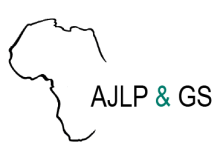Resource information
Land is the most vital resource on earth from which humankind derives almost all its basic needs. Land plays significant role through economic, social, political and cultural dimensions. Administration of this vital resource (Land) is a major issue underlying social, economic and cultural development. Its protection will be sustainable if there is proper land administration system. Land administration and management in urban Ethiopia during the last decade was in transition and has faced many interrelated challenges simultaneously. Addis Ababa (capital of Ethiopia) had a plan to expand its territory into the surrounding areas. However, the master plan proposed by city administration in 2016 has faced challenges from the residents of the surroundings. Thus, the major objective of this paper is to evaluate the Federal urban land administration processes and institutional arrangements in light of advocacy coalition theory. In order to achieve the objective stated above, the paper has used primary and secondary data sources. Desk review research strategy and qualitative research approach are at the heart of the analysis. Primary data through telephone interview with federal urban and rural land administration experts, secondary data from different sources such as internet, proclamations, regulations, reports and constitution were benchmarked. Two governmental institutions have been used as coalition allies, which are Addis Ababa city administration and Peri-urban towns. The federal government in this case is served as a policy broker.The paper found that Ethiopia administers and manages its land by two different legal frameworks and separate institutions. The rural land administration and management, at federal level, is administered by the Ministry of Agriculture and Natural Resources while the urban land, at federal level, is administered by the Ministry of Urban Development and Housing. All urban lands in the country are governed by the new urban land lease holding proclamation No. 721/2011. This proclamation has been enacted in accordance with article 40 of the Constitution.


